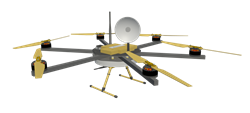
The U.S. Department of Transportation will require recreational drone operators to register their aircraft with the federal government. A new task force has been formed to determine which aircraft should be exempt from the registration
The federal government will seek to register all drones, including the lighter, remote-controlled crafts favored by hobbyists, so it can track down any drone pilots who collide with other aircraft or violate rules for safe flights.
Transportation Secretary Anthony Foxx said recently the new rules will apply to hobbyists as well as commercial drone operators, who already register.
FAA expects comprehensive rules for drones to be completed in June 2016. For now, FAA guidelines require drone hobbyists to fly their crafts below 400 feet. Commercial drone pilots with permits must stay below 500 feet. Both types of operators must avoid flying within 5 miles of an airport unless they have the air-traffic control tower’s permission. And pilots must also keep their aircraft within sight and fly only during the day.
Government regulators and industry leaders are eager to get rules in place as interest in remote-controlled aircraft surges.Quadcopters equipped with a high-definition cameras cost little more than $40 and can be purchased easily online, while models that fly longer and higher can run thousands of dollars. Retailers expect drones to fly off the shelves as gifts this holiday season.
Hobbyists argue their lighter aircraft pose less danger than the heavier commercial models and should not be as strictly regulated. Such regulations and higher costs associated with registration could drive away recreational fliers with smaller models, said Dave Mathewson, executive director of the Academy of Model Aeronautics (AMA), which represents 180,000 hobbyists. AMA pilots put their membership number, name, address on their aircraft so the owners can be found if the drones are involved in a collision, Mathewson said.
The Federal Aviation Administration (FAA) already requires registration numbers on commercial drones and it has approved 1,891 special permits through Oct. 15 for a variety of uses, such as aerial photography, pipeline inspections and agricultural monitoring. But until now, the FAA has not required hobbyists to register, although hundreds of thousands of remote-controlled aircraft have already been sold.
Foxx on Monday announced the appointment of a task force to develop the registration requirements, due Nov. 20. Besides AMA, task-force members include the Air Line Pilots Association, the industry group Association for Unmanned Vehicle Systems International, the American Association of Airport Executives. Foxx said the task force will review retroactive drone registration of those already sold.
“It’s a matter of responsibility that we will take seriously,” Foxx said. “We want to ramp up on enforcement,” he added, with $25,000 FAA fines and criminal penalties possible.
The Air Line Pilots Association, a union representing 52,000 pilots, has urged a national registry so that when a drone collides with a passenger plane, authorities can trace the drone debris back to its owner.
Capt. Tim Canoll, the union president, said registration will drive home the seriousness of flight rules. Pilots are eager “to ensure we maintain the highest levels of safety of our aviation system,” he said.
Pilots have reported an increase of drones around airports as they are taking off or landing. FAA officials now say reports of such incidents number about 100 a month, which is on pace to more than quadruple the 238 incidents reported in 2014. High profile incidents, including small drones crashing in January on White House grounds and this month on the Ellipse near the White House, have also drawn attention to the issue because all drone flights are prohibited in Washington, D.C. U.S. Park Police and Secret Service identified both recreational pilots, but tracking down operators would be easier with a national registry.
“These reports signal a troubling trend,” FAA Administrator Michael Huerta said. “Registration will help make sure that operators know the rules and remain accountable to the public for flying their unmanned aircraft responsibly. When they don’t fly safely, they’ll know there will be consequences.”
Source: usatoday.com
